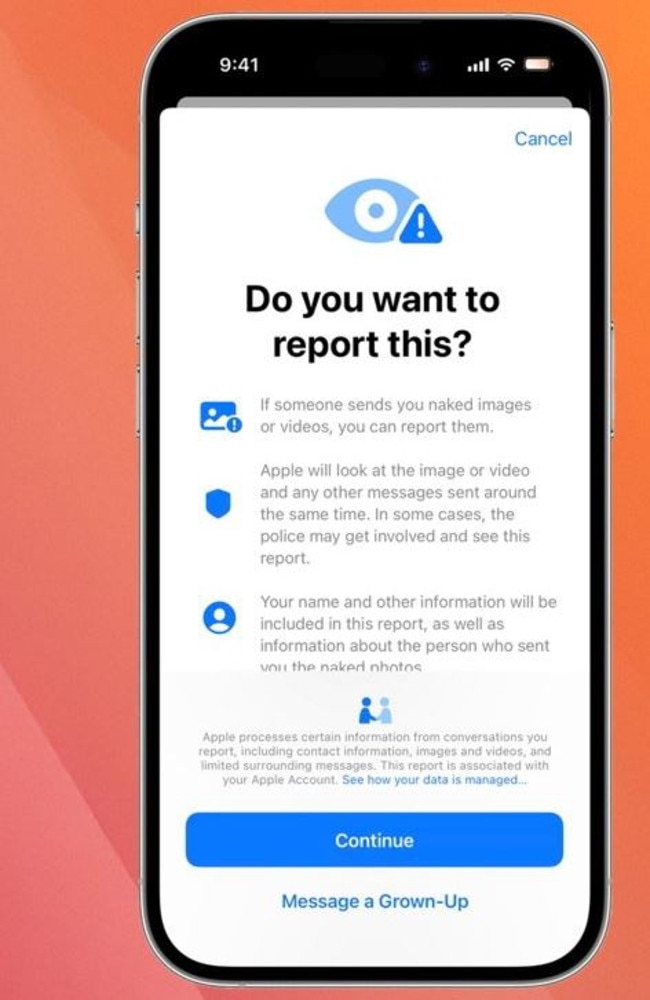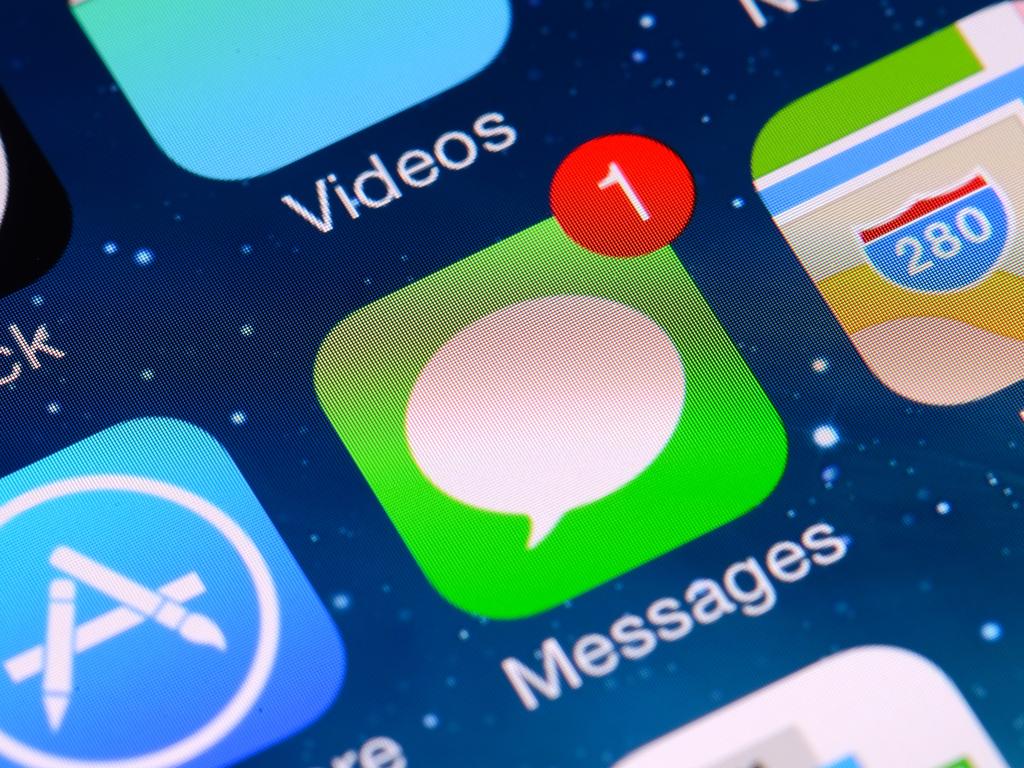Apple iOS 18.2 lets children report nudity in iMessages in Australia
A new tech feature allowing young users to report dodgy material sent to them has been hailed as a positive step forward, but more needs to be done. Here’s what you should know.
Apple has introduced a new feature allowing children to report unwanted nude images directly to the company.
Here’s how it works
Apple started releasing new versions of its operating system to Australian users this week. As part of the new system, users under the age of 13 will now automatically have additional caution screens pop up when the system detects that a message being sent may contain explicit material. The cautionary messages will apply to Apple apps such as iMessage, Photos, FaceTime and Airdrop, and enable the user to report unwanted images or video to the company.
Adults can also opt in to the new feature.


Why is Apple doing this?
Big tech has been criticised for not doing enough to protect children. Australia’s eSafety Commissioner Julie Inman Grant welcomed the release of the new Apple feature yesterday, calling it a “positive initiative that will help protect children from receiving unsolicited nudes using Apple devices”
A report from eSafety in 2022 found Apple had no in-service reporting mechanism, “so it is no coincidence Apple is introducing this feature in Australia before rolling it out worldwide,” Ms Inman Grant said.
“While we welcome this new feature, we continue to call for Apple to broaden its approach, including by introducing measures that help further protect children and all users from the full range of online harms, including terrorist content, technology-facilitated abuse and re-traumatisation through the hosting and sharing of child sexual exploitation material. Other services without these key safety features must follow-suit,” she said.

News Corp’s own Let Them Be Kids campaign has raised awareness about the dangers lurking online for young people – and how tardy the tech sector has been at addressing the problems.
How big a problem is this?
A December 2023 survey of more than 1000 young Australians, aged 15 to 24, found that in the previous 12 months, 17 per cent had received unsolicited nude photos or videos, while one in five were asked unprompted to send nude images.
The Big Youth Survey by Year13 also found the respondents were split on whether social media had a positive or negative impact on them.
Is Sexting a crime?

Sending, receiving or even requesting a naked or a sexual image of a person who is under the age of 18 is a crime in Australia.
The laws apply even to images of people who look like they are under the age of 18, or images that have been photoshopped, as well as cartoons.
Sexting laws also apply to those teens who are over the age of consent (17 in South Australia and Tasmania, 16 in all other states and territories) but not yet 18.
Sextortion still a huge problem
It’s one of the sickest crimes imaginable: offenders encouraging young people to send nudes online, and then threatening that same person with the release of that material unless they pay a bribe. In the US, the FBI received more than 13,000 reports of online financial sextortion of minors in just 18 months, and said the crime had been directly linked to at least 20 suicides. Young boys are most often the target.
The AFP-led Australian Centre to Counter Child Exploitation (ACCCE) reported last month that it had received an average of 93 sextortion reports per months in the first six months of 2024. This was down on the previous year’s figure of 300 reports per month, but still too high, the ACCCE said.
More Coverage
Originally published as Apple iOS 18.2 lets children report nudity in iMessages in Australia
Read related topics:Explainers




